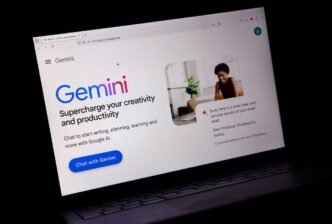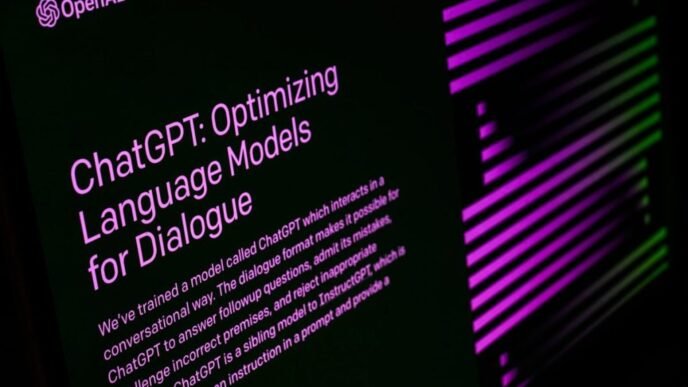Generative AI might appear to be a magical technology, but behind its sophisticated development lies a workforce of dedicated employees at tech giants such as Google and OpenAI. These individuals, often referred to as ‘prompt engineers’ and analysts, play a crucial role in assessing the accuracy of AI-generated outputs. Their evaluations are vital for refining chatbots and enhancing overall AI performance.
However, a recent internal guideline shift from Google concerning its AI project, Gemini, has raised alarms, particularly regarding its propensity to disseminate incorrect information on critical subjects like healthcare. This change impacts contractors working on Gemini, who are responsible for evaluating the accuracy of AI-generated responses.
Previously, contractors from GlobalLogic, an outsourcing firm owned by Hitachi, had the option to ‘skip’ prompts that fell outside their area of expertise. For instance, if a contractor lacked a scientific background, they could opt out of evaluating a specialized query related to cardiology. This flexibility was intended to maintain the integrity of the evaluation process and ensure more accurate ratings.
However, in a recent update, GlobalLogic informed contractors that they are no longer permitted to skip prompts, regardless of their expertise level. The internal communication reviewed by TechCrunch reveals a significant shift in policy. Earlier guidelines clearly stated, ‘If you do not have critical expertise (e.g., coding, math) to rate this prompt, please skip this task.’ In contrast, the new directive instructs contractors that ‘You should not skip prompts that require specialized domain knowledge.’ Instead, they are now directed to evaluate the segments of the prompt they comprehend while noting their lack of domain expertise.
This alteration has incited apprehension about the accuracy of Gemini’s outputs, particularly concerning intricate subjects. Contractors are increasingly finding themselves tasked with evaluating highly technical AI responses on matters such as rare diseases or advanced scientific queries, despite having no relevant background. One contractor expressed their confusion by asking, ‘I thought the point of skipping was to increase accuracy by giving it to someone better?’ This sentiment reflects the broader anxiety regarding the potential decline in the quality of AI responses generated by Gemini.
The new guidelines do allow contractors to skip prompts in limited scenarios: if they are ‘completely missing information’—such as an incomplete prompt or response—or if the content contains harmful material that necessitates special consent forms for evaluation. However, the restrictions on skipping prompts in most cases raise serious questions about the evaluation process’s reliability, especially in sensitive areas where accurate information is paramount.
Google has yet to respond to TechCrunch’s inquiries regarding these changes, leaving many in the AI community and beyond to speculate on the implications for Gemini and its performance. The potential for AI systems to provide misleading or incorrect information, particularly regarding healthcare, poses significant risks, especially when users rely on these technologies for critical insights and advice.
As generative AI continues to evolve and become more integrated into everyday life, the protocols governing its development and evaluation will need to adapt accordingly. Ensuring that AI outputs are verified by individuals with appropriate expertise is crucial for maintaining trust in AI systems. The new guidelines could inadvertently lead to a dilution of expertise in the evaluation process, ultimately compromising the quality and reliability of AI-generated information.
In response to these developments, it is essential for stakeholders to advocate for more robust evaluation practices that prioritize accuracy and safety. This includes considering the implications of having individuals without relevant expertise assessing complex AI outputs. The technology’s advancement should not come at the cost of providing users with potentially inaccurate or harmful information.
As the situation unfolds, it will be crucial for both Google and its contractors to find a balance that ensures the continued improvement of AI systems like Gemini while safeguarding the accuracy of the information being provided. This balance is vital not only for the credibility of AI technologies but also for the well-being of users who depend on these systems for reliable knowledge and guidance in their lives.
In conclusion, while generative AI has the potential to revolutionize the way we access and interact with information, the recent changes in evaluation guidelines for Google’s Gemini underscore the importance of maintaining high standards in the assessment process. As the field of AI continues to expand, the need for accountability and expertise in evaluating AI-driven outputs will remain a pressing concern for developers, contractors, and users alike.













